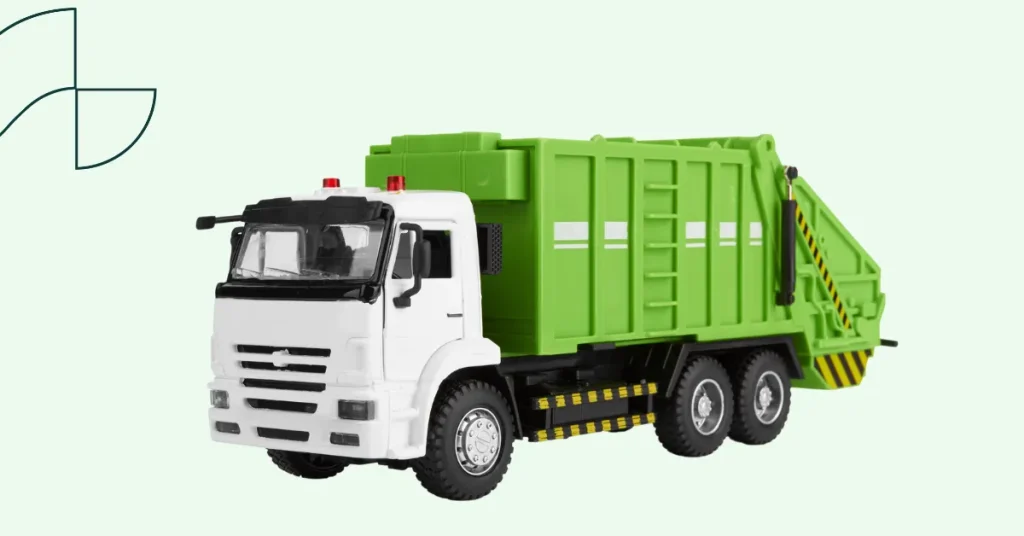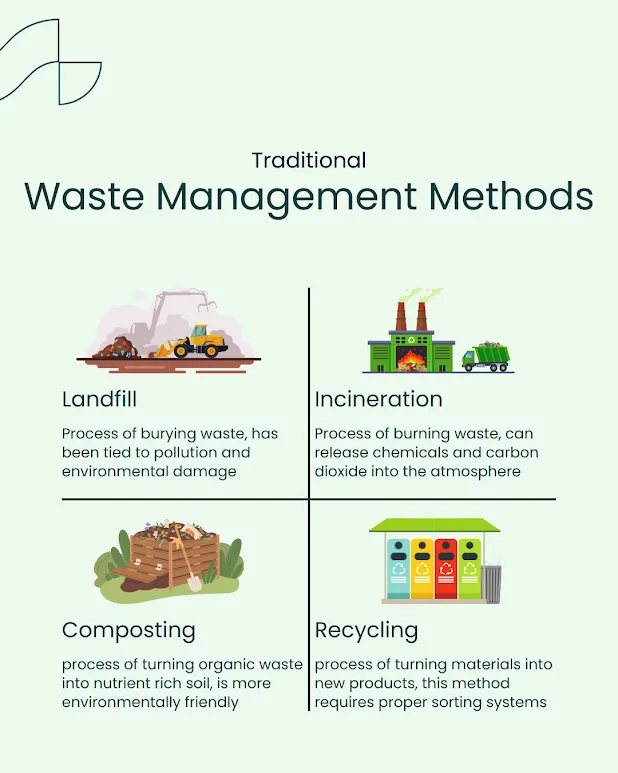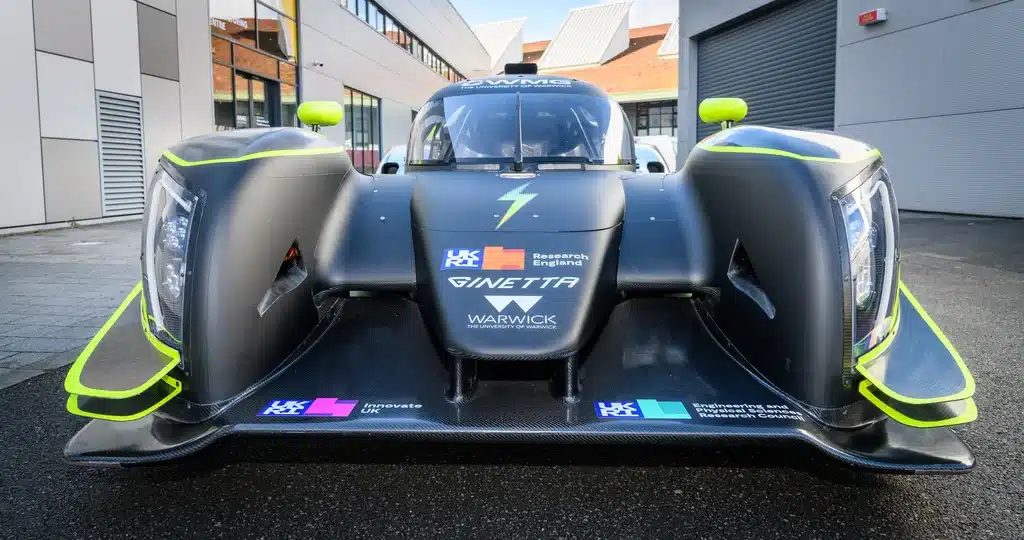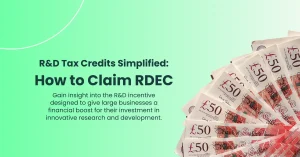Waste Management & Tax Relief: How to Maximise Savings

As we become mindful of our environmental impact, the demand for more effective waste management systems increases, but how can businesses offset the cost of innovation? This is where a UK tax relief overseen by HMRC can be of help. So we’re looking at current waste management methods, emerging innovations, a case study highlighting the power of R&D tax relief, and how you can maximise your tax relief claim.
While landfills are pushed to the limits and the public’s awareness of sustainability increases, efficient waste management solutions are more important than ever. As businesses investing in advancement can attest, the cost of innovation in waste management can often be pretty costly. But with tax relief providing significant savings, British businesses can innovate without the financial burden looming over them.
This is why today, we’re navigating the world of waste management to help you maximise your savings and provide a much needed solution to how we dispose of refuse.
What is Waste Management?
Waste management is the process of handling waste from the moment it’s discarded to the moment it’s disposed of. This process includes the following steps:
- Collection
- Transportation
- Treatment
- Disposal
As interest in environmental preservation has become more prominent in recent years, the waste management industry has been challenged with developing eco-friendly solutions to more traditional disposal techniques.
This has paved the way for scientific and technological innovations that cross the boundaries of what we believed possible of our waste.
Traditional Waste Management Methods
It’s safe to say that over the years, our society has been pretty wasteful. The amount that we throw away has reached inconceivable levels. Up until very recently, we’ve relied on traditional methods of waste management to regularly remove refuse. These traditional waste management methods include:

Innovations Transforming the Waste Management Sector
The term “out of sight, out of mind” isn’t good enough for the innovators working to produce more sustainable waste management methods. These recent advancements made in the waste management sector aim to improve processes, reduce the environmental damage of waste, and even repurpose that which we so freely dispose of.
AI Powered Waste Sorting
Some businesses are using AI and machine learning software to sort recyclable waste and improve the rate of recycling with reduced contamination.
This speeds up the process of waste sorting, which improves the efficiency of recycling. Some of the British based businesses involved in this form of innovation are:
Biodegradable and Compostable Packaging
In an effort to reduce pollution made by non-biodegradable waste, manufacturers and food brands alike are investing in greener solutions when it comes to packaging.
Using plant based materials, biodegradable and compostable packaging is an environmentally friendly alternative to more common packaging (such as plastic), as they’re designed to break down into natural or nutrient substances. Some of the businesses investing in biodegradable and compostable packaging as a waste management solution include:
Sewage Hydrogen Power
Businesses and research facilities have been investing in alternate waste management processes that convert sewage into hydrogen power. Innovations in this area help to protect public safety as it promotes proper sewage treatment, while bettering the environment with a more sustainable form of energy.

A team at Warwick University recently revealed their supercar that runs on feces. The project (aptly named Waste2Race) teamed up with Wastewater Fuels and Severn Trent Water to develop the vehicle that uses sewage as fuel through hydrogen conversion.
How R&D Tax Relief Supports Waste Management Innovation
Unfortunately innovation doesn’t come cheap. Those exploring sustainable waste management options typically spent £1000’s on research and development.
For businesses in the UK that are investing in waste management development however, R&D tax credits can provide a much needed relief. By providing tax relief to businesses investing in research and development that seek a scientific or technological advancement, R&D tax credits help innovators to reinvest funds into daily operations or even additional projects!
So whether a business is working on waste to energy innovation or they’re developing systems that simplify existing processes, the R&D tax relief can help them save money on qualifying costs.
To show how the tax relief rewards businesses working on waste management innovation, we’re taking a look at how one business received over £82,000 in R&D tax credit benefits.
Case Study: Example of Waste Management Tax Relief
This particular client of ours had been working on an innovation that centered around waste to energy technology. Their aim was to design, manufacture and operate waste to energy technology that reduces waste and provides cleaner energy.
They did this by studying the mechanics of existing plant technologies to create new technology that optimised the process of using waste to produce high quality biofuel, biomethane, and green hydrogen.
Because this project met HMRC’s eligibility criteria for by seeking to resolve a scientific or technological uncertainty, and because it required a team of experts as opposed to a single competent professional, the research and development qualified for R&D tax relief.
From here, we helped our client to identify qualifying activities so that they could claim a portion of their qualifying costs that included:
- Direct staff costs (including PAYE, NIC and pension contributions)
- Test stage prototype costs
- Consumable items (including materials)
After trusting us with their claim, this client received an R&D tax credit benefit that totalled £82,570.25.
Top Tips to Maximise R&D Tax Relief
Many businesses miss out on potential savings either because they fail to keep accurate records, or because they don’t fully understand what activities and costs qualify for the relief. This is why the greatest way to maximise your R&D tax credit claim is to be prepared.
To ensure that you’re prepared and to maximise your R&D relief, we recommend you follow these top tips:
- Understand the latest HMRC policy
Tax relief changes can transition over time, so keeping up to date with the latest from HMRC or following the topic on social media can help you better understand the tax relief - Regularly update documentation with project progress
R&D claims require detailed documentation that outlines the progress of your project including goals, challenges and solutions - Maintain accurate financial records
Keeping track of all costs relating to the research and development project will help when it comes to establishing qualifying costs, and will help validate your claim - Consult an R&D tax credit specialist
Specialist advisors that work with R&D tax credits have a unique understanding of compliance, and can ensure that you’re getting the maximum benefit in adherence with tax relief policy
Improve Tax Relief Savings with Alexander Clifford
As one of the UK’s leading R&D tax credit advisories, Alexander Clifford offers specialist support for businesses throughout the claims process, ensuring that even the most comprehensive claims are HMRC compliant.
Our collaborative approach allows us to identify unidentified qualifying costs, and ensures that the claims process is as smooth as possible. That’s why so far, we have successfully secured over £83 million in tax relief on behalf of our clients.
That’s what makes Alexander Clifford your trusted choice for R&D tax credits.
If your business is working on a new waste management solution, you could be eligible for R&D tax relief. Fill in the form below or book an appointment with one of our specialists to get started.
Book a quick call







